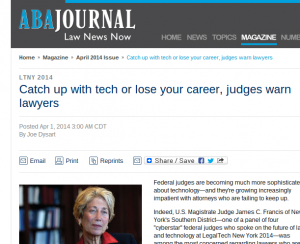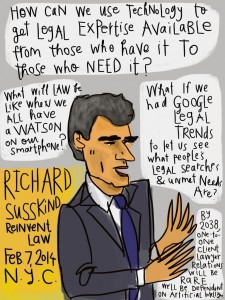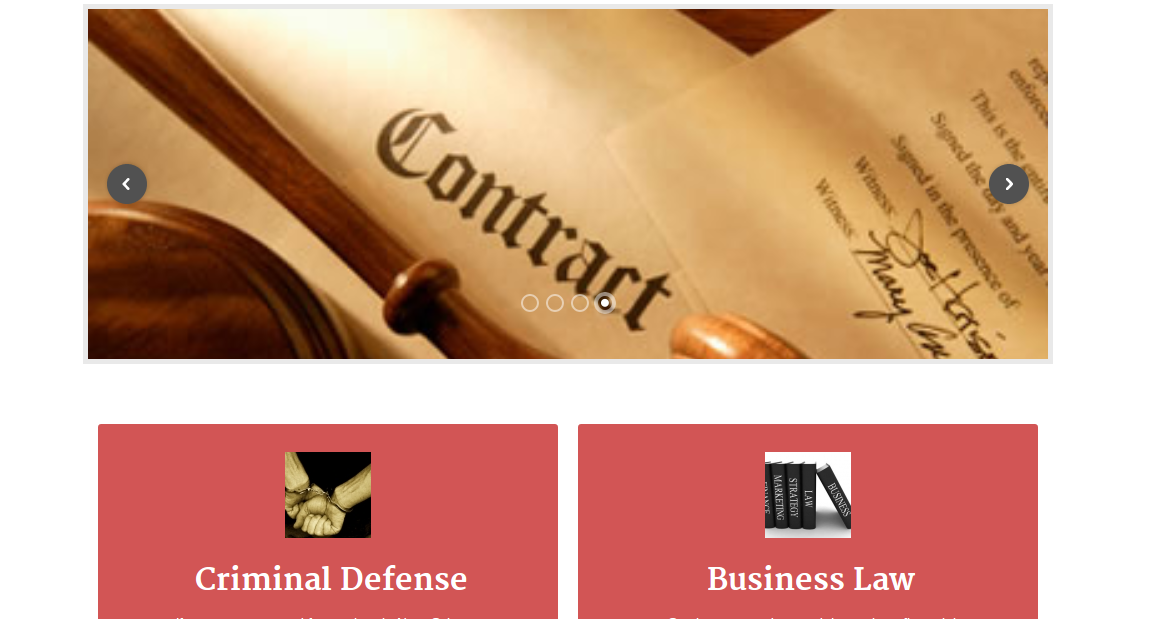Read the article here.

Name Change and New Opportunities!
Starting next academic year, the Litigation and Technology Clinic will change its name to the Technology and Legal Innovation Clinic. We believe that this name better expresses what students do in the clinic and opens up many new and exciting possibilities. Additionally, the Technology and Legal Innovation Clinic will become a part of Loyola’s new Law, Technology, and Entrepreneurship Certificate Program where law students do an intensive concentration in the business and technology side of law practice.
The Clinic will be for 5 (five) credit hours and will be offered in the spring semester, but the work on projects will continue year around. We’re looking forward to the future!
Lawyers: Algorithm Tamers of the Future

These are certainly exciting times for the legal profession. Our public square is noisy with talk about how technology is going to revolutionize law and transform the profession as we know it. Much of this talk is, however, long on optimism and short on specifics. Last week’s ReInvent Law conference in New York City was a great example of this, having produced many exciting proposals as well as a few well-placed criticisms about our legal future, but not a convincing road map for the way forward.
I’ve read more articles and blog posts about the future of law and technology than I care to admit. None of them has satisfactorily answered the question posed to me by lawyer Nick Trenticosta when I told him that I would be teaching my law students to program computers: “Computers! What do computers have to do with it?” In other words, why should law students learn to code? Don’t they already have enough on their plates just learning the law? Can’t they just hire someone to make the software for them? Continue reading
Github, Forking, and Access to Justice
Tl;dr: Forking is great; Our decision tree project is a good way to screen and refer potential clients. Use it.
Last week, I gave a talk on open source software to members of the Louisiana State Bar Association, and part of the discussion centered around the wonder of “forking.” Forking is the practice in open source software development where one developer can easily create a copy of someone else’s code and then make whatever changes or improvements they wish, a practice which has been greatly facilitated by the advent of Github. To give a concrete example of forking, I told them the following story.

If Nothing Else, At Least WordPress
Students have a lot – some might say too much – to learn in their two semesters in the Litigation and Technology Clinic. As if mastering practical evidence, direct and cross-examination, jury selection, and the decryption of New Orleans Police Department reports isn’t enough, they are also called on to learn functions, expressions, if/else statements, and all other sorts of tech concepts that are foreign to your average lawyer. Some students will do better than others. Some have taken to coding and continue to do it after graduation. Some never open a text editor again. Realizing this, I only have one drop-dead tech requirement for each of our students: If you learn nothing else, you are going to at least learn WordPress. Continue reading
Using WebRTC for Talking to Clients and Colleagues
![]() Recently, I spent a pleasant afternoon with members of the Louisiana State Bar Association’s Access to Justice Tech Committee. We were discussing various ways in which technology could help with access to justice issues and the talk turned to using video chat to meet with clients and co-workers. Some members were concerned about using third-party services like Skype or Google Hangouts for this and I suggested we take a look at WebRTC. Unlike Skype and the others, WebRTC creates a direct peer-to-peer link between you and the person with whom you are chatting. It runs natively in the browser (unfortunately, only Chrome and Firefox), so it doesn’t require any plugins to run. Most importantly, all content streams in WebRTC are encrypted by default.
Recently, I spent a pleasant afternoon with members of the Louisiana State Bar Association’s Access to Justice Tech Committee. We were discussing various ways in which technology could help with access to justice issues and the talk turned to using video chat to meet with clients and co-workers. Some members were concerned about using third-party services like Skype or Google Hangouts for this and I suggested we take a look at WebRTC. Unlike Skype and the others, WebRTC creates a direct peer-to-peer link between you and the person with whom you are chatting. It runs natively in the browser (unfortunately, only Chrome and Firefox), so it doesn’t require any plugins to run. Most importantly, all content streams in WebRTC are encrypted by default.
I did up a demo to show the committee members, which you can try out here. The source code (which is a fork of Keith Norman’s great project) is available on Github. It would be nice to see some implementations of WebRTC in some justice apps soon.
Luddite Lawyers Are Ethical Violations Waiting To Happen
Law Office of the Future
Here is an interesting visualization of legal trends of the future. What would Rumpole do? [Via John Flood and Lydia Bailey].

The MIT School of Law
Daniel’s Martin Katz’s keynote at Future Law 2013 is one of the few PowerPoint presentations I will watch the whole way through. His vision of law school as less of a liberal arts experience and more of a polytech (“Math Will Be On The Exam!”), is a bit frightening, but also inspiring. Counselor, get out your slide rule….
 http://lawyerist.com/luddite-lawyers-ethical-violations-waiting-happen/?utm_content=buffer11499&utm_source=buffer&utm_medium=twitter&utm_campaign=Buffer
http://lawyerist.com/luddite-lawyers-ethical-violations-waiting-happen/?utm_content=buffer11499&utm_source=buffer&utm_medium=twitter&utm_campaign=Buffer